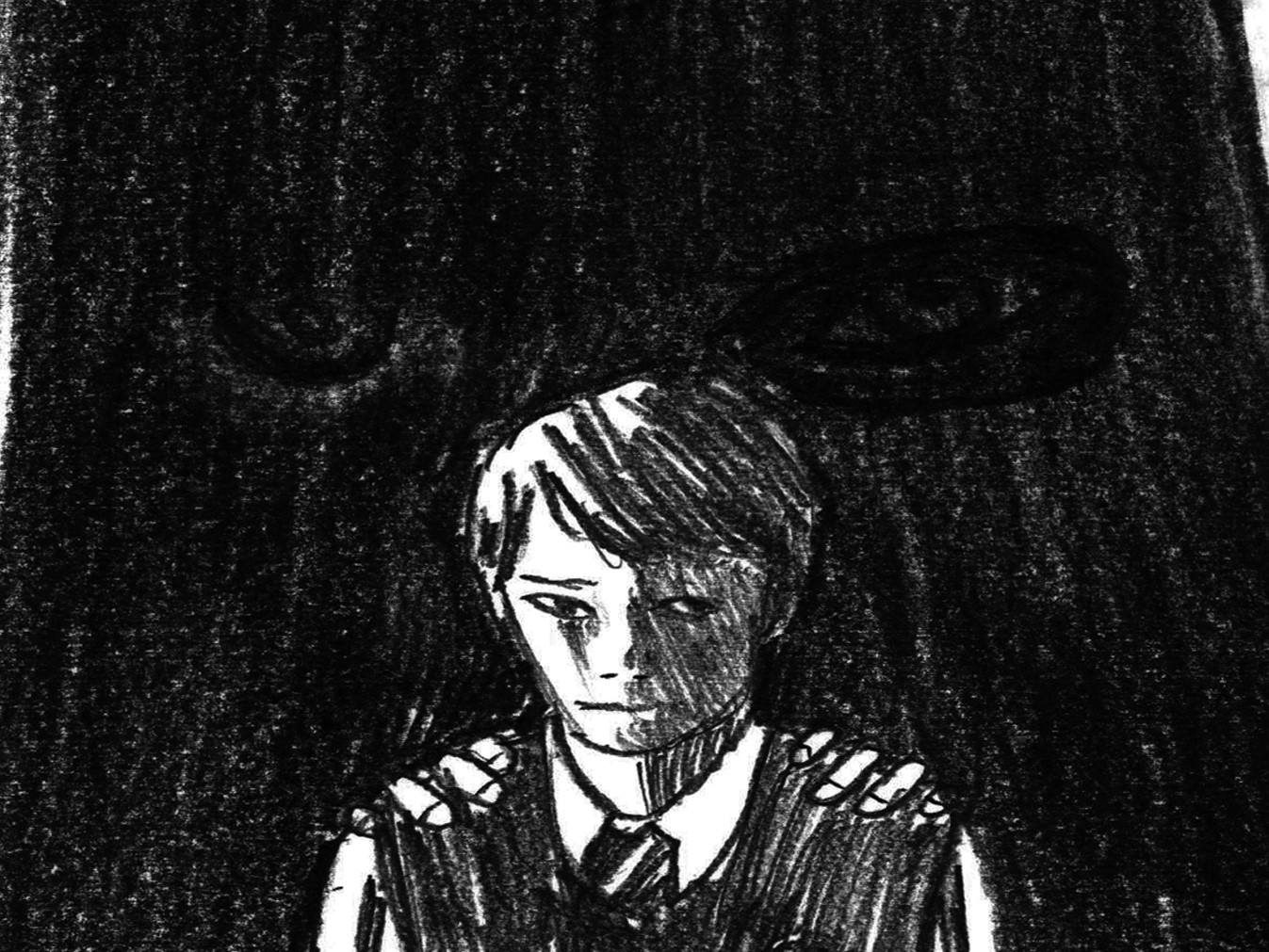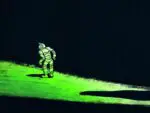In an interview with Vulture, John Carpenter, the iconic horror mastermind and director of “Halloween” and “The Thing,” claimed, “There are two different stories in horror: internal and external. In external horror films, the evil comes from the outside, the other tribe, this thing in the darkness that we don’t understand. Internal is the human heart.”
Internal and external stories are central to quality horror, and the new, heavily marketed horror flick “The Prodigy” has blurred the lines between the two. Hitting theaters last week, the film features a child, Miles, who struggles internally with an external presence attempting to absorb his soul. However, the audience is unaware of the source of Miles’ cruel behavior until about midway through when his mother, Sarah, records him mysteriously speaking Hungarian in his sleep, despite his having English-speaking parents and never traveling outside the United States.
Director Nicholas McCarthy foreshadows Miles being possessed before this scene, but most viewers will not see the connection between characters Edward Scarka (40-year-old serial killer) and Miles (genius 8-year-old) until it is explicitly explained. Then, “The Prodigy” becomes a pulse-pounding rollercoaster ride of desperation, confusion and pure evil.
A Masterful Plot
An astounding strength of “The Prodigy” is how components of the plot tie together. For instance, the first sequence of the film includes flashes back and forth between Sarah giving birth to Miles, then to Scarka’s captive, Margaret St. James, escaping through the woods after losing a hand.
Scarka and St. James are briefly emphasized in the beginning, then forgotten until pivotal points of the story near the middle and end. The film is masterful in the way that it hints small details — which seem irrelevant — that only an attentive viewer will catch, then makes those features integral to the film’s conclusion.
The mind-boggling mission that Sarah embarks on as a main character is also a brilliantly composed facet of the plot. The serial killer Scarka has been reincarnated in Miles’ body, and their two souls are battling for control. However, “The Prodigy” further complicates things by posing that Scarka could fully absorb Miles’ soul — basically meaning Miles dies internally — if they cannot rectify the horrific, unfinished business Scarka returned to Earth to finish, making for nail-biting scenes leading up to a heart-stopping finale.
Acting
An undeniable asset to “The Prodigy” is the performance by child actor Jackson Robert Scott as Miles. The young actor’s ability to portray both an innocent child and a manipulative adult killer is impressive, especially considering how creepy Scott can be when channeling his inner Scarka.
Scott is convincing in both scenarios and transitions seamlessly from one to the other multiple times. Although Scott’s performance may be enhanced by editing, it is still noteworthy that a child his age can execute such a horrific role.
Taylor Schilling and Peter Mooney play Miles’ parents in the film, initially coming across as relatable first-time parents and sharing terrific chemistry as they make the transition to distressed caretakers halfway through the film.
Mooney is definitely effective as a father furiously trying to find legitimate answers to a supernatural phenomenon, as he is reluctant to believe the “reincarnation crap” that his wife and Jacobson are spewing. Mooney does an excellent job of portraying the recurrent skeptic of the supernatural, and, consequently, he must pay for it.
Schilling is a satisfying character who displays the fierce bond between a mother and her son. Her diverse countenances, emotional outbursts and the way she handles the dual identity of her child on-screen are sophisticated tasks.
However, a more expressive and dramatic actress would propel the character further than Schilling could. The astonishing circumstances Sarah encounters with her child should evoke more pain and despair than Schilling exhibits in “The Prodigy.”
Cinematography
Nichols McCarthy crafted an artistic film with camera shots that provide a rich undertone to the story of “The Prodigy.” For example, the initial sequence of the film includes parallel shots of the newborn Miles sprawling naked on a table and Scarka laying on the grass naked with several gunshot wounds after shooting at police officers in front of his lair. The quick two-part shot alludes to the relationship between Scarka and Miles and is a memorable sequence that gains clarity as the film ensues.
Another artistic shot is when Miles meets with Jacobson for a session of hypnosis to try and bring Scarka to the surface. McCarthy distorts the lighting of the room, manipulates the lens of the camera and uses the click of the hypnotizing instrument as the centerpiece of the metaphysical transformation from Miles to Scarka. The dramatic approaches enhance the feel of the scene and make Jacobson’s hypnotism alluring to the audience, so much so that they may worry they are being hypnotized themselves.
Disturbing vs. Scary
Much of the film’s shock value is presented through an adult male intruding on the intimacy between a mother and son. For instance, when Miles has a bad dream and asks to sleep with his mother for the night, the audience and Sarah are tortured by whether it is Scarka or Miles who is actually cuddled up with her. Although this type of twisted terror will have a psychological effect on its audience, the lack of in-your-face action and jump scares in “The Prodigy” gives the film a slow-boiled pacing that can at times become monotonous.
The only scares that will make you pop out of your seat are sequences when Miles’ body is suddenly distorted by physical features of the 40-year-old Scarka. For instance, in a scene where Sarah is saying goodnight to Miles, just before she closes the door, she glances one more time at the back of Miles’ head, and it snaps around at her with the face of Scarka. The surprising corruption of his innocent face is scream-worthy, which the majority of the film fails to achieve.
Finally, “The Prodigy” is unlike most horror flicks due to its intricate plot and unpredictability, both of which horrors often struggle to construct. However, the heavily psychological aesthetic of the film undermines much of the popular interactive characteristics of the horror genre. Consequently, “The Prodigy” is less effective as a horror film and more at home in the thriller/mystery genre.
















